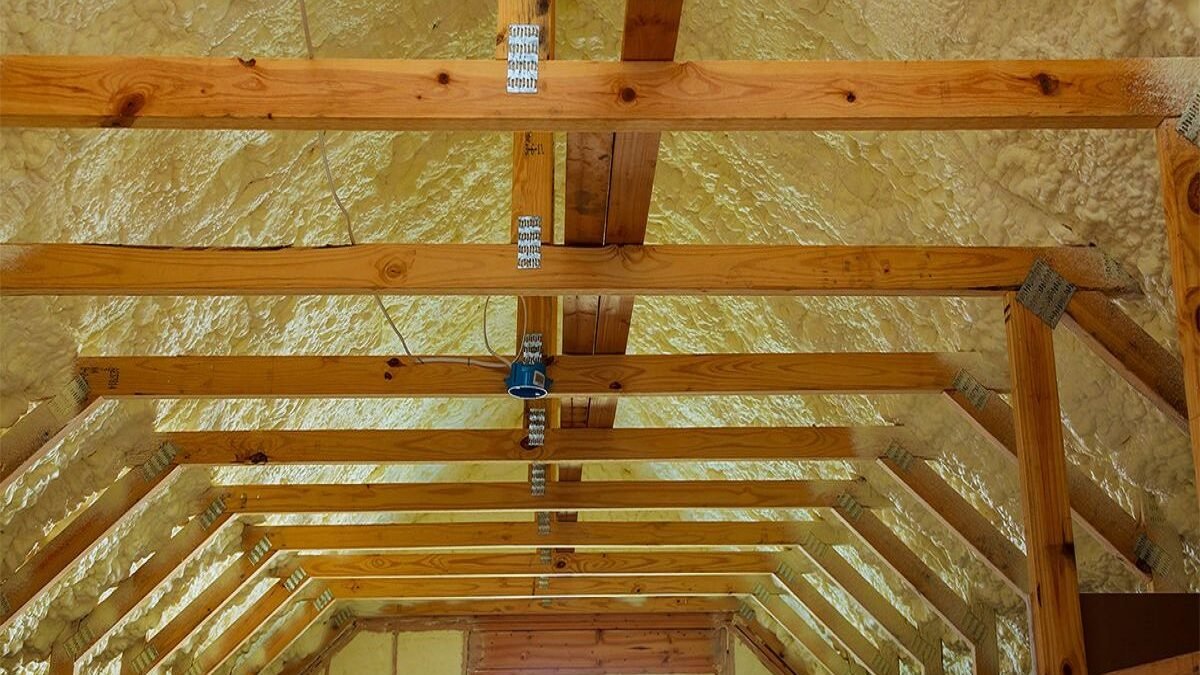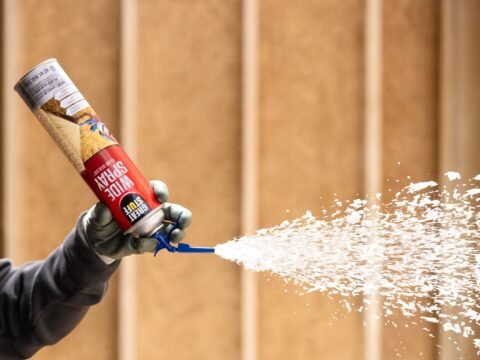
How Attic Insulation Can Lower Your Costs and Increase Your Comfort at Home
February 28, 2023
Can Spray Foam Insulation Reduce Noise?
March 4, 2023Homeowners could save on average 15% off their energy costs when they air-seal their homes and install adequate insulation to their attic floors, walls, and ceilings. With summer underway, the costs will likely rise to ensure your house stays relaxed and comfortable. But you can ease the stress off your cooling system and reduce your energy bill by installing or upgrading your insulation. Spray foam insulation is available in two varieties that are open and closed cells of spray foam. Each one has distinct advantages in your residence. We will break down these differences by dividing them into categories so you can choose the one you prefer to insulate your home.
Cell Structure
Spray insulations can get classified as open or closed cells, which refers to the partitions or bubbles of foam. The insulation of open cells gets created by cells containing tiny air bubbles. The air bubbles form open-cell insulation that is more flexible and soft but less resistant to water and moisture. The closed cell insulation, however, is composed of compressed cells. Because the bubbles get sealed off, this foam insulation can get described as more robust and highly resistant to moisture and water.
Density
Closed cell foam insulation’s design is that there’s no air pocket within its bubbles. Instead, it’s constructed with only insulation materials, making it much denser than its open-cell equivalent. The density of an insulation material influences its other properties, including the capacity to keep moisture away, make an air seal, or reduce sounds.
R-Value
The R-value is an indicator of an insulation material’s heat resistance. The greater the R-value, the better insulation translates into higher energy savings. The lower value of the R-value for open cells could restrict their ability to insulate when exposed to extremely harsh weather.
Expansion
Its expansion will get reflected when it is applied. After spraying, foam insulation expands at various rates based on the materials. Because closed-cell foam tends to be thicker and more robust, it does not expand as much after spraying. In most cases, it can grow to about one inch in thickness. Foam with open cells, on the other hand, is highly expandable. In some cases, it expands up to 100 times its original thickness. Open cell foam insulation’s capacity to expand in only one spray makes it an excellent choice for insulating tight spaces. The foam cancan penetrates the corners and crevices of crawl spaces and attics, ensuring there aren’t any places where moisture and air can leak.
Blowing Agents
Blowing agents can improve the insulation’s thermal performance materials. The majority of open-cell foam utilizes water as an agent for blowing. Closed cell spray, however, uses chemical agents, giving it a chemical smell for a short time.
Moisture Permeability
As mentioned previously, the density of a spray foam coating influences its permeability. The open-cell foam is permeable. It means that moisture and water can flow through the foam. Open cell foam can hold up to 5% of its weight in water when exposed to water. Permeable insulation alerts you instantly if it leaks, as the water will color the foam. The leak can get quickly fixed rather than building up the water, which can cause severe damage. Spray foam with closed cells, in contrast, is inert to moisture. Since water can’t pass through it, closed-cell foam shields you’re home from moisture from the air and leaks, and it does not soak up water in the event of flooding.
Air Seal Capabilities
Air sealing your home blocks the outside air to block any warmth transfer from your indoor and outdoor space. Both closed and open cells of spray foam insulation have the capability of air sealing, but they differ in how much. Because closed cell foam tends to be less dense, it requires at least three inches in thickness to create a good air seal in walls and as much as 10 inches to seal the air sealing. However, dense closed-cell foam requires about two inches of coating on the walls and 5 inches of the ceiling to ensure air seal.
Advantages of Open Cell Spray Foam Insulation
Spray foam with an open cell structure offers numerous benefits as the insulation you choose.
1: Cost Savings
One of the greatest of its many benefits is its cost. In addition to the lower manufacturing cost, open-cell spray foam has a significant expansion rate. Because it expands faster than the closed-cell spray foam after being applied, it requires less material to cover the same area and saves on labor and overall expenses.
2: High Expansion Rate
The incredible rate of expansion of open cell spray foam means that it can fill every corner of the area you’re insulation. Open-cell spray foam ensures that difficult-to-reach areas in your attic, walls, or crawlspace are correctly air-sealed. It provides relaxation and comfortable indoors and keeps the heat out.
3: Hydrophobic
Another advantage of the open cell foam side is the ability to hold less than 5 percent of its mass in water. Since it’s a hydrophobic material, you don’t have to replace this kind of insulation if there’s an issue and it is subject to the elements.
4: Pest Deterrent
Suppose you’re concerned about pests and rodents digging through your insulation. In that case, there’s no need to worry anymore about it with transparent cell foam. The insulation material doesn’t provide nutritional value to pests. Therefore you won’t see them scurrying around your crawlspace or attic.
What Are the Advantages of Closed Cell Spray Foam?
As with the open-cell counterpart, closed-cell spray foam insulation has numerous advantages.
1: High R-Value
The most significant benefit is the higher R-value that it gives when compared with the open-cell foam. The higher R-value that this kind of insulation can provide is a great benefit in situations where you struggle to comply with building code standards due to the low depth of walls. With insulation with a higher R-value, you will be able to achieve the ideal R-value and still be code-compliant, having less space.
2: Flood Resistance
Another of the primary advantages of closed-cell foam lies in its thickness. Due to its denseness, water, and moisture can’t be able to pass through the insulation. It is highly beneficial for houses prone to flooding because the insulation will stop flood water from entering, thus protecting your home from damage.
3: Structural Rigidity
The homes get considered pole-based designs, meaning the system is built of wooden posts submerged into the ground and could require structural support. Spraying closed-cell foam gives an additional layer of rigidity. The rigidity of closed-cell foam will also strengthen its affixed structure.
What Is the Best for You?
The decision between closed or open cell foam insulation is what you require for your home. If you reside in an area where the building code requires a higher R-value or you’re in a flood-prone zone, closed air-filled foam is an excellent investment. The budget-friendly open-cell foam spray will be a perfect alternative if you want to cut costs but not sacrifice high-quality insulation. However, both choices offer excellent benefits, including sound dampening, air sealing, and insulation against severe weather.
Trust the Experts with Your Insulation
Still, trying to figure it out? 613 Spray Foam can help. As the local insulation specialists in Ottawa, we provide top-of-the-line solutions and exceptional customer service. You can consult our experts in spray foam insulation to find the most suitable insulation choice to fit your house. Our team can assess your home’s energy efficiency and pinpoint areas of concern. Then, we’ll suggest the most efficient insulation solution to ensure your home gets shielded from heat loss or gain. With our top insulation services, which use top-quality equipment and materials, you’ll get the perfect indoor temperature. Make time with 613 Spray Foam today by calling (613) 319-8422 or emailing info@613sprayfoam.ca.




